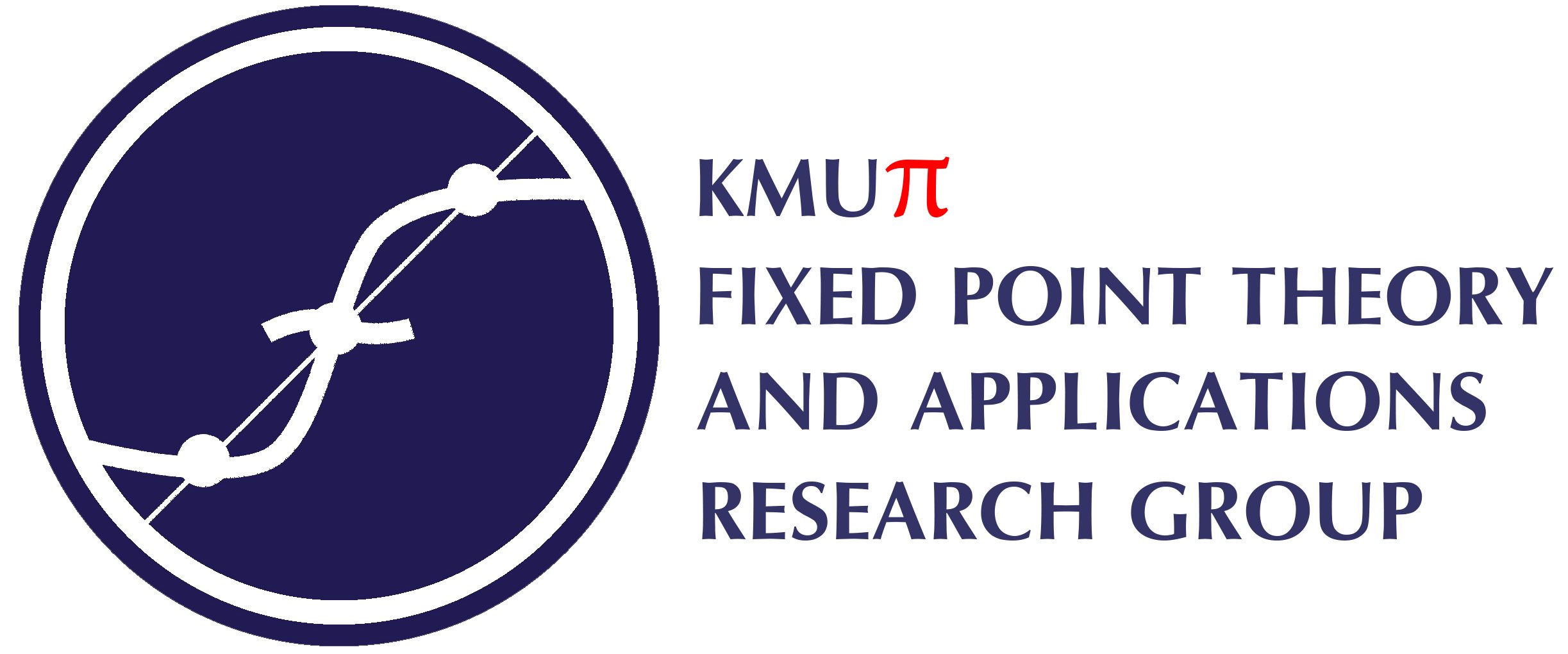
Fixed point theory deals mainly with the points that stay still under some certain actions. To be precise, a fixed point is a point in which, where is a given function. However, fixed point problems we are working with usually emerge in some more general and abstract settings. The ultimate goals of fixed point theory can be split into two categories. One is to find the conditions under which the function attains a fixed point. The other one is the determination of such fixed points knowing that they actually exist, using some classes of schematic algorithms. Formally, the first category is usually referred to as the existence part and the second one is called the computation part. Another important, but less known to general mathematicians, is the study of the behavior of fixed points such as well-posedness, ill-posedness, stability, data dependence, and solution-set geometry.
Since the very first results from the early 20th century, fixed point theory has proved itself to be a very powerful tool in modern mathematics especially in nonlinear analysis, where the unusual behaviors and phenomena wildly occur. Due to its simple and accessible notion, various problems are encouraged to be reformulated in certain fixed-point equations. Less obviously, more than one fixed point equations correspond to a single problem might be possible. Fixed point theory is an applicable science, both to mathematics itself and to practical real-world problems. Branches in mathematics that address fixed point theory greatly are numerical analysis, differential and integral equations, dynamical systems, semigroup theory, fractal compressions, random operator theory, stochastic theory, ergodic theory, intersection theory, variational analysis, etc. In contrast, practical sciences that extensively exploit fixed point theory includes, but not limited to optimization, operational research, decision making science, economics, game theory, engineering, computer science, image processing, medical programming, physics, etc. In our research group at KMUTT, we have a great diversity of research directions. Members in our groups work in small clusters, but with strong connections in between. Each of the clusters concerns with a particular kind of problems. Some clusters provide the others with new useful tools and methods. While some clusters make use of others to accomplish the desired outcomes. With this effective character, we have over fifty papers published each year in highly qualified journals, and they are on different purposes, aspects, approaches, and methods.
Thematic Areas of KMUTT-FPTRG
- Existence theorems and related behaviors
Basic question of a single mathematical problem is about the solvability of that problem. In this area, we are seeking for simple and general conditions in which a certain fixed point problem is solvable. Investigations of this field are made more general and usable by applying to a broad class of nonlinear mappings and domain spaces. Further behaviors are sometimes also of interests. This includes the uniqueness, stability, and Picard and weak-Picard properties. The structure of the solution set is also important. Interesting results involve the connectedness, closeness, boundedness, and convexity of the solution set. These problems are well-known for their useful applications in optimization, functional analysis, differential equations, and integral equations.
- Set-valued analysis
This topic focuses on the set-valued extension of an ordinary mapping. That is to say, a mapping that assigns to each point of its domain a subset of some co-domain space. The problems that usually associated to this topic is the fixed point inclusion, hybrid fixed point, point of singularity, intersectional property, KKM property. This class of problems are widely applicable to optimization and economic models.
- Optimization, variational inequality, and equilibrium theory
This is one of our mainstream application of our pure mathematical research. The theory of optimization, variational inequality, and equilibrium problem exploit largely on fixed point theory especially with set-valued setting. Several cases of these problems can be formulated in some form of inclusion or intersection problems involving a set-valued mapping of specific definitions. By such formulation, we may be able to investigate them in a more effective way.
- Approximation and solution method
Most of the above investigations give us only qualitative knowledge about particular problems, its solutions and behaviors. This topic deals with the quantitative counterpart of all the above-mentioned problems. The question about the iterative method is asked, and most of the time we have to additionally introduce some algebraic structures inside the domain space. Therefore, Hilbert and Banach spaces are favorable in this area. Problems we concern is to propose new algorithms and methods and prove their convergence property and that they are numerically stable under a controllable errors. Rate of convergence are also investigated




